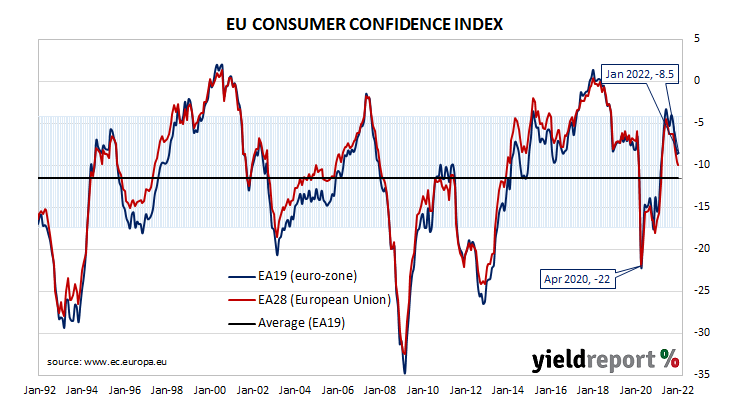Summary: Euro-zone households slightly less optimistic in January; index falls 0.1 points to -8.5; still above long-term average; euro-zone sovereign bond yields moderately lower as equity markets fall.
EU consumer confidence plunged during the GFC and again in 2011/12 during the European debt crisis. After bouncing back through 2013 and 2014, it fell back significantly in late 2018 but only to a level which corresponds to significant optimism among households. Following the plunge which took place in April 2020, a recovery began a month later, with household confidence returning to above-average levels in March 2021. However, more recent readings have slid back towards the long-term average.
Consumer confidence deteriorated in January according to the latest survey conducted by the European Commission. Its Consumer Confidence Indicator recorded a reading of -8.5, essentially in line with the -8.7 which had been generally expected and slightly lower than December’s figure of -8.4. However, the current reading is still above the long-term average of -11.6.
Sovereign bond yields fell moderately in major euro-zone bond markets on the day as equity market suffered sizable falls. By the end of it, the German 10-year bund yield had shed 5bps to -0.07% while the French 10-year OAT yield lost 3bps to -0.7%.


